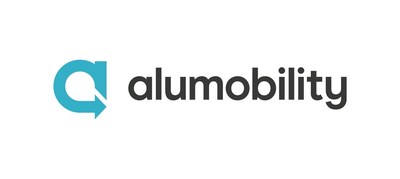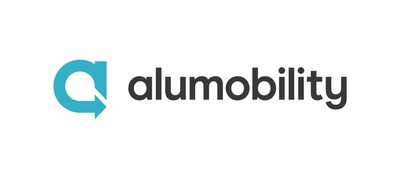E-commerce growth, shift to EV/BEV drive need for high-strength, low weight, infinitely recyclable aluminum
ZURICH, May 2, 2023 /PRNewswire/ — Alumobility, a global association committed to helping advance the adoption of aluminum by automakers, announced that a new study shows that aluminum-intensive Last Mile Delivery Vehicles (LMDVs) provide significant lightweighting and cost-saving benefits as well as reducing carbon footprint. As e-commerce continues to grow, the logistics industry is planning to introduce sizable LMDV fleets and turning to aluminum as the ideal material to meet the needs of the marketplace, taking into account costs, sustainability targets and performance.
The study shows that LMDV fleet managers opting for aluminum-intensive electric/battery electric vehicles (EV/BEV) experience 45 percent cost savings compared to steel internal combustion engine (ICE) vehicles. Key benefits of aluminum-intensive vehicles compared to steel ICE vehicles include:
- Lighter weight
- Infinitely recyclable
- Reduced costs
- Reduced emissions
- Lower maintenance and energy costs
- Less risk of corrosion
- More durable
A primary benefit of shifting away from steel and toward an aluminum-intensive LMDV fleet is that aluminum is 40 percent lighter than steel, which is especially important as the market turns to EVs/BEVs as a sustainable option. Aluminum-intensive vehicles require less battery capacity and less motor power to achieve the same performance as steel counterparts, whether conventional ICE vehicles or EV/BEV.
According to the U.S. Office of Energy Efficiency & Renewable Energy, an office of the U.S. Department of Energy, it takes less energy to operate a lighter weight vehicle than a heavy one. In fact, a 10 percent reduction in vehicle weight can result in a 6-8 percent reduction improvement in fuel economy. Replacing traditional steel or iron components with a lightweight replacement such as aluminum can reduce the weight of the vehicle and chassis up to 50 percent and significantly reduce fuel consumption.
Furthermore, the total cost of ownership of an aluminum-intensive EV/BEV vehicle is lower than a steel ICE or EV/BEV vehicle. In addition to net fuel/electricity costs being reduced, maintenance is also less expensive because aluminum is more durable with less risk of corrosion.
“Aluminum-intensive vehicles are game changers for the LMDV market,” said Prof. Mark White, Technical Director, Alumobility. “The design of the LMDV features large flat panels, so it is ideally suited to take advantage of the lightweighting benefit that aluminum offers. This, in turn, translates into a 47 percent mass savings.”
In addition to the cost and lightweighting benefits, there are significant sustainability advantages to aluminum-intensive vehicles, which result in lower lifetime carbon emissions. Also, a lighter vehicle puts less wear and tear on tires and brakes, therefore further reducing emissions.
In fact, over the lifetime of a vehicle, there is a significant reduction in CO2 emissions when comparing a steel ICE LMDV to a an AIV BEV LMDV. A 2022 LCD study showed that a steel ICE vehicle will produce 77 tones of CO2 over its lifetime while an AIV BEV will produce 47 tones of CO2 over the vehicle’s lifetime and a steel BEV 50 tones.
The key takeaway when comparing a Steel BEV with an Aluminum BEV, is that there is a
- 4 percent carbon reduction,
- 22 percent mass savings or 540kg
- 6 kWh battery size reduction
- 5 percent cost per mile reduction
With the introduction of President Biden’s Clean Action Plan, which hopes to see greenhouse gases reduced by 50-52 percent from 2005 levels by 2030 in the United States, the logistics and LMDV industries have added pressure to put sustainability as a priority. In addition, the European Union’s zero pollution action plan for 2050 establishes certain targets for 2030 including improving air quality to reduce the number of premature deaths caused by air pollution by 55%.
“The infinite recyclability and enhanced lifecycle assessment associated with aluminum-intensive vehicles is a major factor for the LMDV market, which is planning for the future and looking to meet strict sustainability targets,” said Prof. White.
Alumobility is a global ecosystem of leading aluminum and downstream technology partners that supports automotive manufacturers in creating lighter, safer, smarter and more sustainable vehicles. The non-profit association was founded to focus on technical studies to advance the adoption of aluminum automotive body sheet (ABS). Working with global automakers, Alumobility is helping to fulfill the promise of a lighter, more efficient, more sustainable mobility future.
![]() View original content to download multimedia:https://www.prnewswire.com/news-releases/alumobility-study-illustrates-why-last-mile-delivery-vehicle-lmdv-fleets-should-be-comprised-of-aluminum-intensive-vehicles-301813435.html
View original content to download multimedia:https://www.prnewswire.com/news-releases/alumobility-study-illustrates-why-last-mile-delivery-vehicle-lmdv-fleets-should-be-comprised-of-aluminum-intensive-vehicles-301813435.html
SOURCE Alumobility


